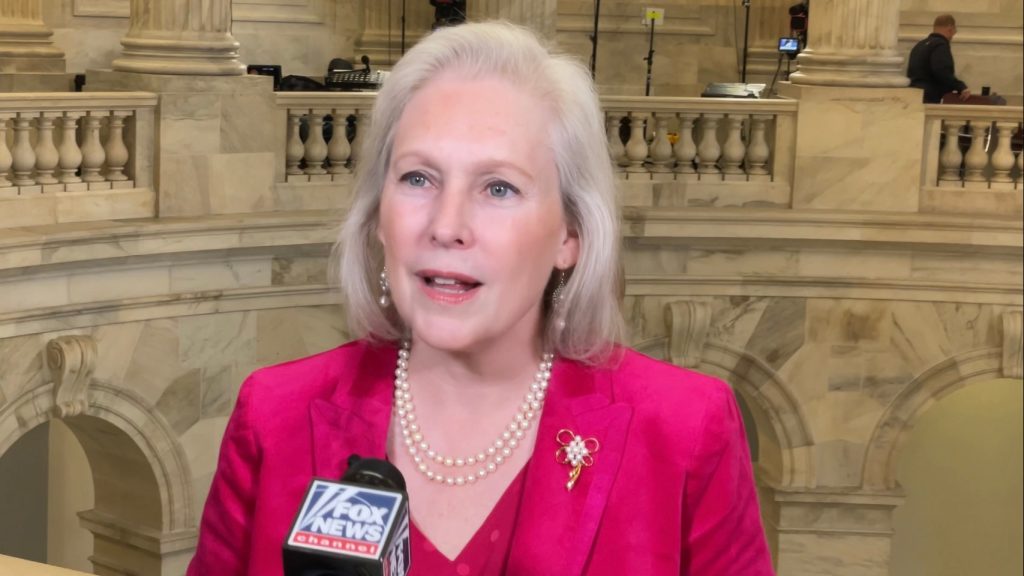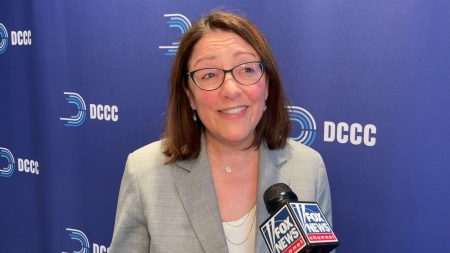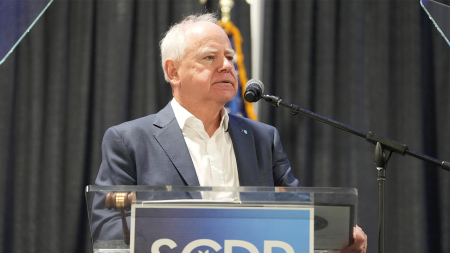Senator Kirsten Gillibrand, newly appointed chair of the Democratic Senatorial Campaign Committee (DSCC), is embarking on a mission to reclaim the Senate majority for Democrats in the 2026 midterm elections. Gillibrand emphasizes the importance of early and consistent engagement with voters, focusing on their concerns and offering concrete legislative solutions. She believes that building strong relationships with voters by addressing their “kitchen table issues” is crucial for electoral success. This approach, she argues, will demonstrate to voters that Democrats understand their needs and are actively working to improve their lives. Drawing lessons from recent election cycles, including the 2024 presidential election, Gillibrand acknowledges the need to adapt strategies and learn from both successes and failures.
Gillibrand’s strategy centers on three key pillars: supporting incumbent Democratic senators, recruiting strong candidates, and ensuring adequate resources for campaigns. She highlights the importance of candidates being present in their communities, engaging with voters directly, and addressing their concerns. This grassroots approach, she believes, will establish a strong connection with voters and demonstrate the party’s commitment to their well-being. Gillibrand cites her own re-election campaign and her efforts to assist House Democrats in flipping Republican-held seats in New York as examples of this strategy in action. By focusing on issues like crime, immigration, fentanyl and gun trafficking, as well as economic concerns such as the cost of food and housing, she believes Democrats can effectively connect with voters and earn their support.
Recognizing the formidable challenge posed by Donald Trump’s success in the 2024 presidential election, Gillibrand emphasizes the need to learn from his campaign’s effectiveness. Trump’s ability to connect with voters across the political spectrum, including in traditionally Democratic states, underscores the importance of understanding and addressing the concerns of a broad range of voters. Gillibrand believes Democrats must adapt their strategies to effectively compete in a changing political landscape. This involves recognizing the evolving concerns of the electorate and demonstrating a genuine commitment to addressing those concerns.
Looking ahead to the 2026 Senate map, Gillibrand identifies both opportunities and challenges for Democrats. She sees potential pickup opportunities in states like North Carolina, highlighting the possibility of former Governor Roy Cooper as a strong contender against incumbent Republican Senator Thom Tillis. She also acknowledges the challenge of unseating incumbent Republican Senator Susan Collins in Maine, but believes a strong Democratic candidate could make the race competitive. Gillibrand emphasizes the importance of recruiting candidates who resonate with voters and who are willing to put in the necessary effort to connect with communities early and often.
While acknowledging the potential for Republican gains, Gillibrand expresses confidence in the ability of incumbent Democratic senators to defend their seats. She highlights the strong community engagement and bipartisan track records of senators like Jeanne Shaheen in New Hampshire, Gary Peters in Michigan, and Jon Ossoff in Georgia. She believes their consistent presence in their communities, coupled with their willingness to work across the aisle, will resonate with voters and contribute to their re-election. Gillibrand’s overall strategy emphasizes the importance of local engagement, tailored messaging, and candidate quality as key factors in determining electoral outcomes.
The 2026 Senate elections present a critical opportunity for Democrats to regain control of the chamber. Gillibrand’s leadership as DSCC chair will be pivotal in shaping the party’s strategy and determining its success. Her emphasis on early voter engagement, candidate recruitment, and resource allocation reflects a comprehensive approach to campaigning. By prioritizing the concerns of voters and actively working to address them, Gillibrand hopes to build trust and demonstrate the Democrats’ commitment to improving the lives of everyday Americans. The battle for the Senate in 2026 promises to be a closely contested and consequential election, with both parties vying for control of the upper chamber.










